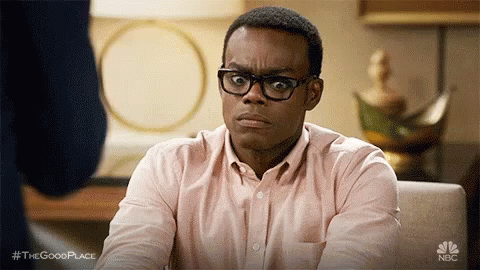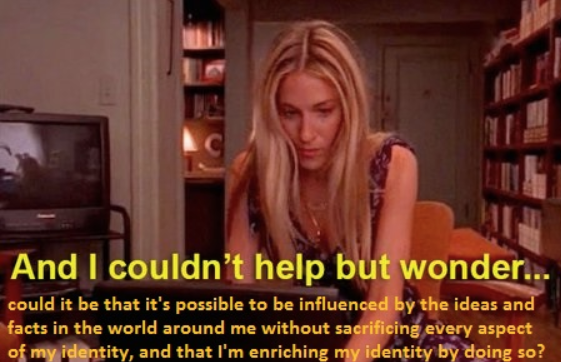When Will My Reflection Show What My Professor Wants to See? How to Write the Reflective Essay

I’m not usually someone who makes Disney references, but when I was coming up with this blog post, I couldn’t help but give in to nostalgia.
Reflection—thinking about ourselves and our actions—is an important tool in our personal, professional, and academic lives. Many of my friends use mindfulness apps like Headspace to help them slow down and think about their lives and situations more clearly. People also use counselors and therapists to better understand their behaviors and emotions, especially during times of change, grief, and conflict. If you’re religious, maybe you use reflection in your practices like prayer or meditation. Exercise can help us reflect on the relationship between our minds and our bodies, blurring the line between physical and mental well-being. We reflect in our jobs by through self-assessments and trainings to become better at what we do, so that in the future we can achieve promotions and titles. There are many ways to reflect, and in this post I’m going to discuss reflection through writing, and how to adapt reflective writing to an academic audience.
Reflective writing is often seen as very personal. Journaling or keeping a diary is maybe the most personal, because the only rhetorical audience is the writer themselves. But sometimes we’re asked to perform that introspection for others, and it can be challenging to balance our unfiltered inner truths with the expectations other people have for our writing, especially when those other people include a professor or classmates.
Have you ever been told not to use “I” or “me” in a class paper? And now suddenly that rule doesn’t apply anymore? But you’re still being graded on this? But you’re supposed to be yourself? As long as that falls into the assignment requirements?

Plus, there are different kinds of reflective genres within the category of academic writing. Subgenres upon subgenres! But this can actually be helpful because once you can identify these subgenres, you know what guidelines to follow in your academic reflection. Let’s talk about some here:
The Portfolio Cover Letter/ Reflective Memo
We often hear about cover letters in the context of job applications—they come with your resume as a way of introducing yourself in a personal manner. They can also accompany portfolios (lookin’ at you, WRIT students) as a way of helping the reader make a connection between the work itself and how you, the writer, intend the work to represent you. They’re not unlike an artist statement that accompanies an exhibit. Through the cover letter, your reader knows they’re not reading your writing in a vacuum—instead, you’re guiding them toward understanding your style, decisions, and progress. You could discuss:
- Challenges you faced producing the work in the portfolio and how you overcame them;
- Strategies and resources that helped you, like peer review or the Writing Center;
- What you most enjoyed about producing the portfolio;
- Why this work is representative of you and your style.
The Self-Assessment
This is one you’re likely going to see outside of school, as self-assessments are often used in the professional world as well. You’re already assessed by your professors through grading, and you’re already assessed by your boss through feedback and training, so why do you have to do it to yourself? In the Writing Center, we often discuss the concept of transfer—how can we get students to transfer knowledge from previous experience to the task at hand? We do this because it gets the writer’s gears going independently; they apply what they know and adapt to the new situation. Self-assessments have the same purpose: you’re more likely to improve if you come to your own conclusions about how you need to improve. If it’s your own idea, your own vision or goal, you’re going to be more likely to achieve it. Kind of like Inception.

Like the cover letter, don’t be afraid to talk about your challenges and your weaknesses, but also don’t be shy about your successes and strengths. The point is not to brag or be too harsh on yourself, but to show your reader how you plan to improve yourself.
The Experiential Reflection
Experiential reflections, like portfolio cover letters and self-assessments, ask us to consider our progress after a particular experience. This experience could be a class, a volunteer post, studying abroad, or (very likely) an internship. Internships are such a popular way to get credit because you can learn in a professional atmosphere and make contacts at the same time. It’s a get-your-hands-dirty way to learn your discourse. But it’s imperative that you show what and how you’ve learned, which is why many professors ask that you produce a reflection of your time as an intern. Like the cover letter, the goal is to demonstrate what progress you’ve made, but you’ll also want to express how you will take what you’ve learned and apply it as a professional.
This genre is as forward-looking as it is retrospective. It shows that you didn’t take your experience for granted. You might want to talk about:
- How you used your contact or supervisor to fulfill new or unfamiliar tasks;
- Conflicts or problems you encountered that you might not have in a classroom setting;
- How you applied your knowledge from previous classes to your role during the experience;
- Feedback you received from your coworkers or peers, and how you might apply it in the future.
The Analytical Reflection/Reading Response
You might be called to reflect on a reading or a topic in any one of your classes. If you’re an English literature student, you might respond to a literary theory by agreeing, disagreeing, or something in the middle, and then enriching your ideas with other established theories and criticisms. If you’re a student of public policy, maybe you’ll be asked to reflect and analyze such a policy—maybe you’re interested in its success in achieving its goal, or perhaps you think the goal itself needs to be criticized and reconsidered. No matter the discipline, your original idea about what you’re responding to should be front and center, so using “I” and “me” are acceptable. But in this subgenre, you need to make sure your ideas are influenced and affirmed by existing research, because if you believe one thing and are surrounded by research and evidence that says the opposite, you can’t expect others in your discourse to hold your idea in the same regard as established thought.

The Literacy Narrative
Think of of this as an autobiography of yourself as a writer. In recent years, a genre called the micro-history has seen several major publications. The book Salt, for instance, offers an expansive world history as it pertains to the influence of salt on human society. The Emperor of All Maladies takes a medical approach to the history of cancer. So think of this assignment as a microhistory of yourself—how have you lived in relation to reading and writing? Some things you might want to consider are:
- Were you encouraged to read or write as a child?
- What were some of your favorite books or favorite authors? How did they influence you?
- Did you enjoy reading or writing in school? What helped you or hindered you?
- Were you ever told not to write the way that you speak? Why do you think that was?
- What was the most important writing project you’ve completed to date?

Cultural Reflection
In some academic discourses, like psychology, medicine, public policy, human resources, or really any field where you interact with the public, you might be asked to consider your cultural background and how that might affect how you relate to others. This can be a pretty vulnerable genre, as it might require you to think about your racial and ethnic identity, as well as your sexuality, gender, an ability. This genre asks you to think about your heritage, the neighborhoods where you grew up, and what possible privileges you might have that obscure the experiences of people who aren’t like you. Not too long ago, I took an implicit bias test after reading an essay by someone who was assigned to take it for class. Some results surprised me, initially, but as I thought about my own cultural past, I began to understand how the results reflected my upbringing and how diverse (or not) it was. It wasn’t easy to be told that I have implicit biases, but taking this test is helping me interrogate those biases and how I act on them in my everyday life, even when I didn’t realize it before. I think this cultural reflection is important for anyone to write, but especially those who enter professions that have some kind of power over other people, whether that’s the power of medical or mental treatment, policy-making, or office dynamics. Cultural reflection helps us understand our own perspectives as well as the perspectives of others.
Conclusion
I hope that this list of genres expands what “reflection” can mean, and what it can do, both for yourself and your grade. Just like any other assignment for class, reflection can have a variety of rhetorical purposes and audiences, and they can be successfully balanced with your personal voice.
I think of it the same way I think about what clothes I’m going to wear—just because I’m most comfortable in a t-shirt and and something with an elastic waistband doesn’t mean I become a different person when I wear business casual for work, and I can still find business casual clothing that aligns with my sense of style. We always make decisions about how we present ourselves in different situations, and reflective writing is no different.
Leave a Reply